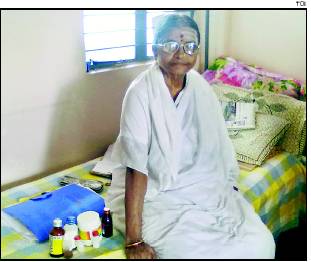Tarique Anwar for BeyondHeadlines
New Delhi: Seventy-year-old Karibasamma, first euthanasia petitioner in Karnataka seeking euthanasia, sees hope in yesterday’s Supreme Court’s verdict, allowing what has come to be termed “passive euthanasia,” the withdrawal of life support to patients in a permanently vegetative state (PVS).
However, the verdict rejected outright “active euthanasia” or ending life through the administration of lethal substances and turned down the plea to allow Aruna Shanbaug, who has been in a vegetative state for 37 years, to die.
Suffering from an acutely agonising slipped disc condition for many years, Karibasamma, who worked in various schools in the city for 33 years, wants a quick and painful death, which she thinks is her due. Diabetes has added frustration with life.
The former teacher with no family members caring for her, Karibasamma has been living in an old age home in Davanagere. Frustrated and suffering acute pain, Karibasamma filed a plea seeking mercy killing in the high court.
Karibasamma’s mercy killing case will come up for hearing on March 11 in the Karnataka High Court.
She told BeyondHeadlines that she felt hopeful after learning of the verdict in the Supreme Court in the case related to Aruna Shanbaug. She added that she did not need her family’s consent to end her life.
Seated in her little spartan room at Ananda Dhama, a home for senior citizens, Karibasamma is vocal about right to mercy death. “If I seek death because I cannot bear the pain, such death should not be considered suicide, but a dignified end,” she says.
“The doctors have no answer to my problem. There is no guarantee that surgery make me better. So there is only one way left,” the former teacher says. “I suffer the pain, not my family,” she said, hoping that the panel of doctors to be constituted would support her.
Advocate Pramila Nesargi, who has been arguing Karibasamma’s case, said, “I will bring to the notice of the judge the orders of the Supreme Court and seek the constitution of a panel of doctors.” Nesargi said that the panel would serve as a permanent committee and the first case it would look into would be Karibasamma’s.
In the last hearing of this case in September 2010, the high court directed the National Institute of Mental Health and Neuro Sciences (Nimhans) to give free treatment to Karibasamma for four weeks and submit a report. The Nimhans report suggested that Karibasamma undergo an operation. “In the wake of the Supreme Court’s verdict, those reports will hold no value,” Nesargi said.























